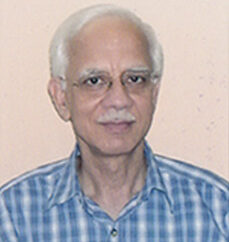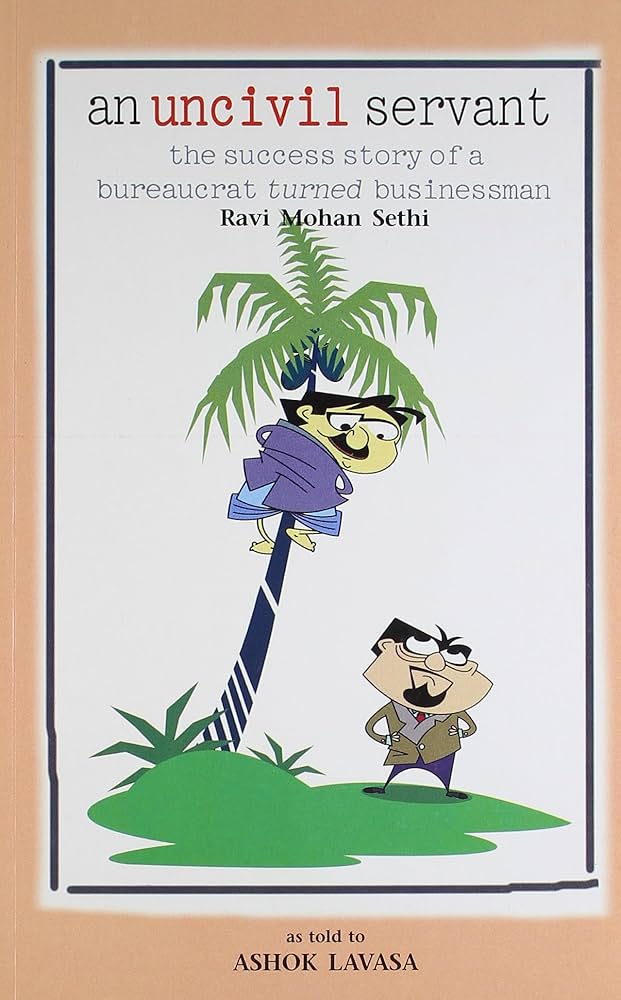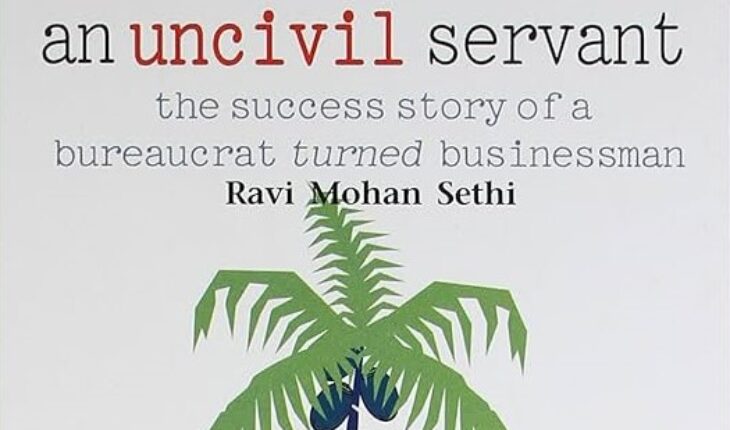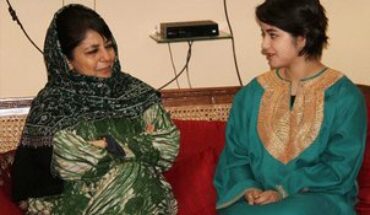Biography of Ravi Mohan Sethi, publishers: Messrs. Rupa Publications India
It may be asked why biography of a civil servant penned by his colleague, maybe, his junior by ten years, evokes interest and what purpose could it serve for a general reader or even those who aspire to join the vast web of the Indian administration.

Ravi Mohan Sethi
The 400-page narration, Ravi Mohan Sethi, an Uncivil Servant, published more than a decade ago, penned by Ashok Lavasa offers a different perspective than most of similar ventures already attempted. It kindles a hope that the key institutions being eclipsed in recent years could be reinvigorated, if the men in the positions dare to pick up the gauntlet.

His peers as well as juniors might have differed having the traditional perspective of a burha saheb still retained in the huge colonial bungalows of district collectors only for the white masters, but with Sethi’s decision, the two centuries old institution tradition just collapsed. For them, the 1970-batch IAS, quietly leaving the steel framework in 1995, perhaps, was an act of terrorism, against the system, which ensured a royal lifestyle the poor in India could offer to the new avatar of the colonial masters. Sethi puts in his papers, just being elevated to the position of a joint secretary, when his peers used to begin playing much vital role in governance. Earlier, number of people refused to serve the British under the ICS, a predecessor of the IAS, such as Ashok ji, who founded Swatantra Bharat in Lucknow on August 15, 1947, but why now, the British had already left the Indian shores.
It is natural to ask, whether he was under the spell of some extreme ideologies reflected in a Che Guevera type gorilla warfare. Many among his peers used to confide this author, he should never have been in their exclusive club of rulers Interestingly, to their dismay, he did not suffer any such perspective, but he deliberately chose to rescript India’s business and trade practices without being a part of the government. For this, he needed to take a plunge in the uncertain world of business and trade. It has been aptly penned by Ashok Lavasa, a 1980 batch IAS, in this biography in two parts, first dealing with his family background and the second his various sojourns with Late N.D. Tiwari, one of the most admired public figures of the 20th. Century India. Another question is being asked why Ashok Lavasa, who already had become Additional Secretary, cared to listen Sethi’s transformation to a tycoon, a businessman that too without much financial resources. The answer, perhaps, could not have been found, when the book was published, but within a decade the mystery was unfolded, when Ashok Lavasa, who was elevated as the country’s finance secretary and then as an Election Commissioner chose to quit the assignment. He, perhaps, was listening to his conscience, by insisting in the transparency in funding of elections. He was ready to face the aftermath; he suddenly becomes persona non-grata for the rulers in New Delhi. The then chief election commissioner, Sunil Arora, one of the most accommodating civil servants ever elevated to this post, could not really mediate and end the controversy. Lavasa was not prepared to concede.
In a bid to please, the powers that be, his successor in the North Block unleashed the common missile of the income tax evasion to cow down the Lavasa family, his spouse, Noel, holding high positions in the banking sector. The Government, however, soon realized that if the admirers of the Lavasas released the details of the siphoning off the Indian resources to offshore financial institutions and the parking of much bigger amounts in the Swiss banks, the political image of the rulers will collapse. As soon as the truth dawned, the income tax department, however, promptly retreated, the allegations against Noel were dropped.
The Title –
In the light of the developments, the both Sethi and Lavasa have been receiving attention in media and other circles. Meanwhile, the biographer and Sethi may consider changing its title because the uncivil also means being rude in the queen’s English, now the king’s English. The author, however, may retain the title as a symbol of experimenting the classical language in India.
The transformation of the Indian polity in the past five decades, since he had joined the service may also get some space. Since, he studied in Allahabad, the role of the university in molding the young politicians and the aspiring civil servants has been unique. The document in its narrative may give a glimpse of the gentlemen politicians, like Purshottam Das Tandon, G. B. Pant, and N.D. Tiwari and many others. Most of them despite having high academic achievements joined the public life. The new generation will be immensely benefitted that how their vision of modern India is being eclipsed with the emergence of regional parties having caste or communal overtones. The civil servants despite their commitments, however, cannot sustain alone the march of India towards a vibrant democratic order. The components, including academia, public figures, jurists, and media, need to be together.
The book gives a glimpse of diplomacy of the yester years, but a mention regarding the aggressive approach of contemporary era might be useful. Sethi reveals that despite political confrontations, the period he served was a golden era. With the issues relate to the welfare of the common good, the political bosses used to value their officials, instead of treating them an instrument for siphoning off state funds to serve their personal and political interests.
If a Swedish company producing bearings in India was being raided for violating the foreign exchange regulations, Sethi confides his boss, N.D. Tiwari, during their visit to Stockholm, he quietly skips their manufacturing unit.
Irrepressible in Seventies –
This author had met Sethi during 70s, when he was assigned the key-role of the director of information in one of the most politically challenging states of India, Uttar Pradesh. He was hardly 28, when this 1970 batch IAS was assigned this job; indeed, more political in nature than that of a classical stiff collar bureaucrat. He excelled, perhaps, due to the Punjabi genes, he has inherited from his parents i.e. never lose hope even amidst the existential crisis. His family and relatives had faced unprecedented genocide during the country’s partition in 1947. Fortunately, during his formative years, he was groomed in Allahabad, India’s most politically enliven city. It is often stated that birds of the same feather fly together, perhaps, it is true of Ashok Lavasa, a 1980-batch of Rajasthan origin, who was given the Haryana cadre. They meet in the Mussoorie academy, where Sethi was a course a director. A deep lifelong bonding took place between them. Lavasa despite being busy in the Union Government finds time to script this text, perhaps, a rare gesture to his guru, Ravi Mohan, who was born in a family of Punjabi refugees, used to tell new promising civil servants be ready for challenges and humiliations, but keep up the spirit to work for the welfare of the common people.
In 1995, Sethi decided to quit the civil service, to plunge in the unfathomed waters of the world of entrepreneurship, business, and trade that too without adequate financial resources. Many his peers in the coveted civil services then considered him an irresponsible, if not an escapist. Three decades later, however, they quietly confide and sometimes also wonder was it worth for them to yield and compromising with the political bosses to be at the pinnacle of the coveted civil service. Many among his peers and juniors have been occupying top positions as a chief secretary, election commissioner or in the PMO, for the most of the people, they do not enjoy the respect for their talent, but just as a subservient pet. Their souls suffer, even padma awards could not redeem them the pride of a civil servant, they have lost in the quest of a mirage. The book even in the present form brings fresh breeze in the corridors of power. It is hoped that the sequel, if penned by them might soon be influencing all of us.
Gopal Misra has been associated with national and international media. His books on journalism and geo-politics have been well-appreciated. Views are personal.





